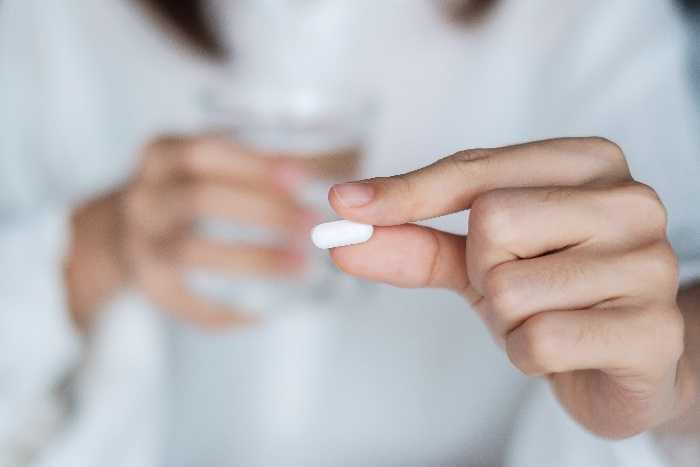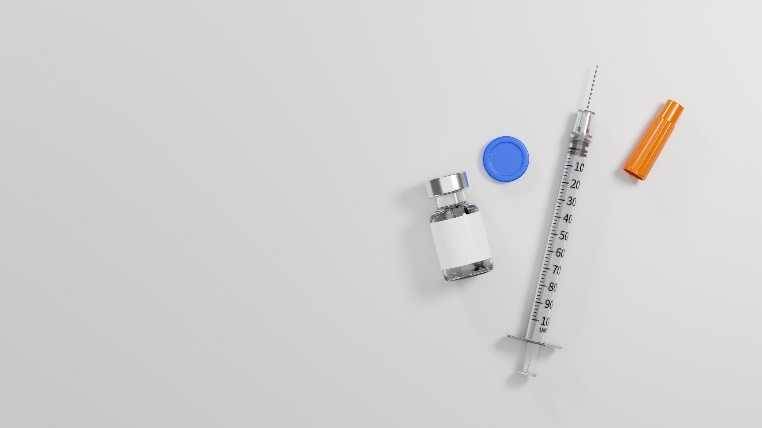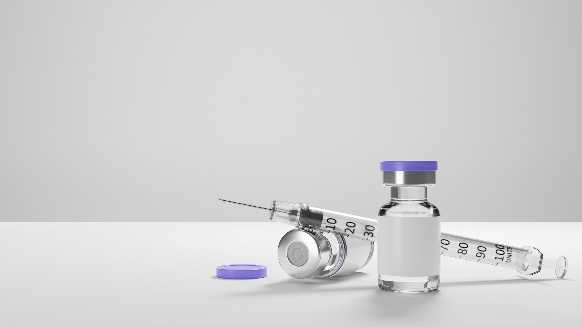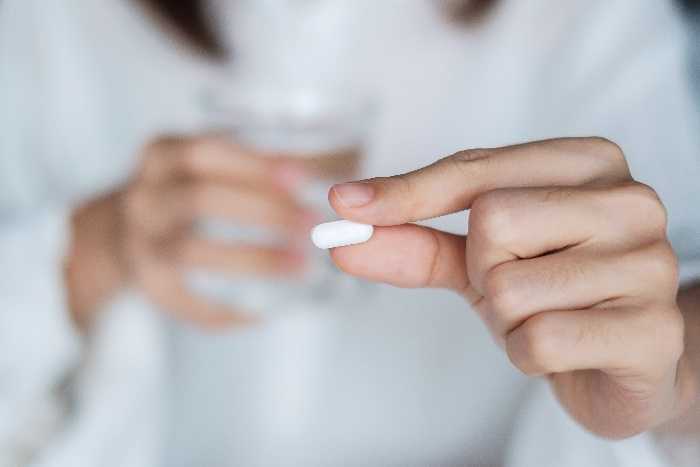In recent years, the topic of testosterone therapy drugs has gained significant attention as an increasing number of individuals seek solutions to address various health concerns associated with low testosterone levels. Testosterone, often referred to as the "male hormone," plays a pivotal role in the development and maintenance of male sexual characteristics, muscle mass, bone density, and overall well-being. However, both men and women produce testosterone, albeit in different quantities, making it essential for the health of both sexes.
As individuals age or face certain medical conditions, they may experience a decline in testosterone levels, resulting in a range of symptoms such as fatigue, reduced libido, erectile dysfunction, muscle weakness, and even depression. To combat these issues, many turn to testosterone therapy drugs as a potential solution.
The surge in interest surrounding testosterone therapy has led people to search engines for answers to their pressing questions. In this comprehensive article, we will address the top 10 questions that individuals commonly ask about testosterone therapy drugs. We aim to provide informative and evidence-based answers to help readers better comprehend this form of medical treatment.
What is Testosterone Therapy?

Testosterone therapy, often referred to as hormone replacement therapy (HRT), is a medical approach aimed at increasing testosterone levels in individuals with diagnosed low testosterone, medically known as hypogonadism. Hypogonadism can occur due to various factors, including aging, medical conditions, or lifestyle choices.
The primary objective of testosterone therapy is to restore testosterone levels to a healthy and physiologically appropriate range, effectively addressing the symptoms associated with low testosterone. These symptoms can significantly impact an individual's quality of life, affecting their physical, emotional, and sexual well-being.
Testosterone therapy drugs are available in several forms, allowing healthcare providers to tailor treatment plans to the specific needs and preferences of patients. The most common forms of testosterone therapy drugs include:
- Testosterone Injections: Administered by healthcare professionals, these injections deliver a controlled dose of testosterone into the muscle tissue. They are typically administered every 1-2 weeks, providing a steady supply of the hormone.
- Testosterone Gels and Creams: These topical formulations are applied directly to the skin, where the testosterone is absorbed over time. Users typically apply the gel or cream to the shoulders, upper arms, or abdomen, ensuring absorption through the skin.
- Testosterone Patches: These adhesive patches are placed on the skin, often on the back, abdomen, or upper arms. They release a continuous and consistent amount of testosterone throughout the day, which is absorbed through the skin.
- Testosterone Pellets: Pellets are small, subcutaneous implants inserted beneath the skin, typically in the buttocks or lower abdomen. They slowly release testosterone over several months, reducing the need for frequent administration.
- Oral Testosterone: While less commonly prescribed due to concerns about liver toxicity, oral testosterone formulations are also available. They are typically taken daily.
Each form of testosterone therapy has its advantages and considerations, and the choice of treatment depends on factors such as patient preferences, lifestyle, and medical history. It is essential for individuals considering testosterone therapy to consult with a qualified healthcare provider who can assess their specific needs and recommend the most suitable form of treatment.
Who is a Candidate for Testosterone Therapy?
Determining who is a suitable candidate for testosterone therapy involves a thorough evaluation by a qualified healthcare provider. Not everyone with low testosterone (low T) levels is automatically eligible for this treatment. Instead, healthcare professionals consider various factors to determine whether testosterone therapy is appropriate for an individual.
The primary criterion for considering testosterone therapy is the presence of clinically diagnosed low testosterone levels, typically confirmed through blood tests measuring the concentration of total testosterone in the bloodstream. It's important to note that testosterone levels can fluctuate throughout the day, so multiple tests may be necessary to establish a consistent pattern of low testosterone.
In addition to low testosterone levels, healthcare providers assess the presence of symptoms associated with low T, such as:
- Fatigue and reduced energy levels
- Decreased libido and sexual dysfunction
- Muscle weakness and reduced muscle mass
- Mood swings, irritability, or depression
- Poor concentration and cognitive issues
- Loss of bone density
If an individual exhibits both low testosterone levels and a constellation of these symptoms, they may be considered a suitable candidate for testosterone therapy. However, it is crucial to conduct a comprehensive medical evaluation to rule out any underlying conditions that might be contributing to low testosterone or causing similar symptoms.
Furthermore, healthcare providers consider other factors when determining candidacy for testosterone therapy, including an individual's overall health, medical history, and potential risks associated with treatment. For example, individuals with a history of prostate cancer or certain heart conditions may not be ideal candidates, as testosterone therapy could exacerbate these conditions.
The decision to undergo testosterone therapy should be made in consultation with a healthcare provider who can assess the individual's specific circumstances and needs. Close monitoring and follow-up care are essential to ensure the safety and effectiveness of testosterone therapy for eligible candidates.
What Are the Benefits of Testosterone Therapy?

Testosterone therapy offers a range of potential benefits for individuals with clinically diagnosed low testosterone levels (low T). These benefits can positively impact various aspects of physical and emotional well-being, enhancing overall quality of life. It's essential to note that the extent of these benefits can vary from person to person, depending on individual factors and the underlying cause of low testosterone. Here are some of the potential benefits of testosterone therapy:
- Improved Sexual Function: One of the most significant benefits of testosterone therapy is the improvement in sexual function. Men with low testosterone often experience reduced libido, erectile dysfunction, and difficulties with sexual performance. Testosterone therapy can lead to increased sexual desire, improved erections, and enhanced sexual satisfaction.
- Increased Muscle Mass and Strength: Testosterone plays a crucial role in muscle development and maintenance. Individuals undergoing testosterone therapy may experience an increase in muscle mass, along with improved muscle strength and endurance. This can be particularly beneficial for those looking to enhance their physical fitness and overall strength.
- Enhanced Mood and Reduced Depression: Low testosterone levels are associated with mood disturbances, including irritability, mood swings, and even depression. Testosterone therapy can alleviate these symptoms, leading to an improved sense of well-being, reduced depressive symptoms, and increased emotional stability.
- Better Cognitive Function: Some studies suggest that testosterone therapy may have a positive impact on cognitive function, including memory, concentration, and mental clarity. This benefit can be especially significant for individuals experiencing cognitive difficulties due to low testosterone levels.
- Increased Bone Density: Testosterone plays a vital role in maintaining bone health and density. Low testosterone levels can lead to decreased bone density and an increased risk of osteoporosis. Testosterone therapy can help increase bone mineral density, reducing the risk of fractures and improving overall bone health.
- Improved Energy Levels and Reduced Fatigue: Many individuals with low T experience chronic fatigue and reduced energy levels. Testosterone therapy can lead to increased energy, vitality, and a greater sense of overall well-being, allowing individuals to be more active and engaged in daily life.
While these potential benefits of testosterone therapy are promising, it's essential to recognize that individual responses to treatment can vary. Some individuals may experience all of these benefits, while others may only notice improvements in specific areas. Moreover, the duration and extent of these benefits may depend on factors such as the type of testosterone therapy used, the dosage, and the individual's overall health.
What Are the Risks and Side Effects of Testosterone Therapy?

While testosterone therapy can offer numerous benefits, it is not without risks and potential side effects. It is crucial for individuals considering this treatment to be aware of these risks and to discuss them thoroughly with their healthcare provider before starting therapy. Here are some of the common risks and side effects associated with testosterone therapy:
- Acne: Increased testosterone levels can lead to an overproduction of sebum, a type of skin oil, which may contribute to acne breakouts. Acne is a relatively common side effect of testosterone therapy, especially in individuals prone to skin issues.
- Fluid Retention: Some individuals may experience fluid retention, which can manifest as swelling or bloating in various parts of the body. It is essential to monitor for signs of excessive fluid retention, as it may contribute to increased blood pressure.
- Increased Red Blood Cell Count: Testosterone therapy can stimulate the production of red blood cells in the body, a condition known as polycythemia. Elevated red blood cell counts can increase the risk of blood clots and should be monitored by healthcare providers.
- Mood Swings: While testosterone therapy can improve mood in many individuals, some may experience mood swings, irritability, or increased aggression. These emotional changes can be unsettling for some patients.
- Breast Enlargement (Gynecomastia): Testosterone therapy can lead to an imbalance in hormones, potentially causing breast tissue to enlarge in some men. This condition, known as gynecomastia, can be distressing and may require additional treatment.
- Sleep Apnea Exacerbation: Individuals with sleep apnea, a sleep disorder characterized by interruptions in breathing during sleep, should be cautious when considering testosterone therapy. In some cases, it can exacerbate sleep apnea symptoms.
- Cardiovascular Risks: There have been concerns about potential cardiovascular risks associated with testosterone therapy. Some studies have suggested an increased risk of heart-related issues such as heart attacks and strokes, particularly in older men with preexisting heart conditions. It is essential for healthcare providers to assess cardiovascular health before initiating treatment.
- Prostate Issues: There is ongoing debate about the potential impact of testosterone therapy on the prostate. While testosterone therapy is generally considered safe for men with benign prostatic hyperplasia (BPH), its effects on prostate cancer are a subject of ongoing research and discussion.
It's important to emphasize that not everyone who undergoes testosterone therapy will experience these side effects, and some individuals may experience no adverse effects at all. The occurrence and severity of side effects can vary based on factors such as the type of testosterone therapy, dosage, individual health, and how closely treatment is monitored by a healthcare provider.
Individuals considering testosterone therapy should have a thorough discussion with their healthcare provider about the potential risks and benefits to make an informed decision tailored to their specific circumstances.
How Long Does Testosterone Therapy Take to Show Results?
The timeline for experiencing noticeable results from testosterone therapy can vary from person to person. Several factors influence how quickly an individual may see improvements in their symptoms and overall well-being while undergoing testosterone therapy. These factors include the individual's age, the severity of their low testosterone symptoms, the type of testosterone therapy used, and the treatment plan prescribed by their healthcare provider.
Here is a general guideline of what to expect regarding the timeline for results from testosterone therapy:
- Short-Term Effects (Weeks to Months):
- Some individuals may begin to notice changes in their energy levels, mood, and overall sense of well-being within a few weeks of starting testosterone therapy.
- Early improvements in sexual desire and erectile function may also become apparent in the initial weeks or months of treatment.
- Muscle strength and endurance may begin to improve, but significant gains in muscle mass may take several months to become noticeable.
- Medium-Term Effects (3-6 Months):
- Over the course of a few months, individuals may experience more pronounced improvements in mood stability, cognitive function, and emotional well-being.
- Continued enhancement of sexual function, including increased libido and improved sexual performance, may become more evident.
- Muscle mass and strength gains may become more substantial as physical changes become more noticeable.
- Long-Term Effects (6 Months and Beyond):
- The full benefits of testosterone therapy often become most apparent after several months of consistent treatment.
- Sustained improvements in energy levels, reduced fatigue, and increased vitality may become a consistent part of daily life.
- Bone density may continue to increase over time, leading to improved overall bone health.
- Individuals who continue with testosterone therapy over an extended period may see ongoing benefits in their overall quality of life.
It's crucial to note that not all individuals will experience the same rate of progress or the same degree of improvement. Responses to testosterone therapy can vary significantly, and some individuals may notice results more quickly than others. Additionally, the effectiveness of treatment depends on factors such as the individual's adherence to the prescribed treatment plan and the type of testosterone therapy used.
Regular monitoring and follow-up appointments with a healthcare provider are essential to track progress, adjust treatment as needed, and address any potential side effects or concerns. Overall, the timeline for experiencing results from testosterone therapy should be discussed with and managed by a qualified healthcare provider to ensure the safest and most effective treatment outcome.
Can Testosterone Therapy Be Abused or Misused?
Testosterone therapy drugs, like many medical treatments, can be abused or misused, leading to adverse health effects and potential legal consequences. It is crucial to understand the appropriate use of testosterone therapy and the risks associated with misuse.
- Unsupervised Use: One of the most significant concerns is when individuals obtain testosterone without a valid medical prescription or use it without proper medical supervision. This can lead to uncontrolled and unsafe dosing, increasing the risk of side effects and complications.
- Performance Enhancement: Some individuals, particularly athletes and bodybuilders, may misuse testosterone therapy to enhance their physical performance and muscle growth. This misuse is often driven by the misconception that higher doses of testosterone will lead to more significant gains, but it can also lead to health risks.
- Overuse: Misuse may involve taking higher doses or more frequent injections than prescribed by a healthcare provider. This can disrupt the body's natural hormone balance, potentially leading to hormonal imbalances, side effects, or adverse health outcomes.
- Dependency: In some cases, individuals may misuse testosterone therapy to the point of dependency, where they become reliant on the medication to maintain their desired physical and emotional state. This can lead to addiction-like behaviors.
- Legal Implications: Misuse of testosterone therapy drugs without a valid prescription is illegal in many countries and may result in legal consequences, including fines and imprisonment.
It is essential to stress that testosterone therapy should only be used under the guidance and supervision of a qualified healthcare provider. Medical professionals assess the individual's specific medical history, conduct necessary tests, and determine an appropriate treatment plan tailored to the patient's needs. Misusing or abusing testosterone therapy can result in serious health risks, and it is not a safe or effective way to enhance physical performance or appearance.
What Are the Alternatives to Testosterone Therapy?
For individuals with low testosterone levels, exploring alternative approaches to address their symptoms and health concerns is a valid consideration. The choice of an alternative to testosterone therapy depends on various factors, including the underlying cause of low testosterone, individual health, and personal preferences. Here are some alternatives to testosterone therapy:
- Lifestyle Changes: Implementing lifestyle modifications can have a positive impact on testosterone levels. Regular exercise, a balanced diet, adequate sleep, and stress management techniques can naturally increase testosterone production.
- Weight Management: Obesity and excess body fat can contribute to low testosterone levels. Achieving and maintaining a healthy weight through diet and exercise can help improve hormonal balance.
- Treatment of Underlying Conditions: Sometimes, low testosterone is a symptom of an underlying medical condition, such as hypothyroidism or diabetes. Treating these conditions may lead to an improvement in testosterone levels.
- Medication Adjustments: In some cases, medications other than testosterone therapy may be contributing to low testosterone levels. Reviewing and adjusting these medications, under the guidance of a healthcare provider, can help raise testosterone levels.
- Nutritional Supplements: Some dietary supplements, such as vitamin D and zinc, may support healthy testosterone levels. However, their effectiveness can vary, and it is essential to consult with a healthcare provider before using supplements.
- Clomiphene Citrate: Clomiphene citrate is a medication that can stimulate the body's natural production of testosterone by acting on the hypothalamus and pituitary gland. It is sometimes prescribed as an alternative to exogenous testosterone therapy.
- Human Chorionic Gonadotropin (hCG): hCG is a hormone that can stimulate the testes to produce more testosterone. It is sometimes used in combination with other treatments to boost testosterone levels.
- Herbal Supplements: Some herbal supplements, such as fenugreek and ashwagandha, are marketed as natural testosterone boosters. However, their efficacy and safety have not been thoroughly studied, and caution is advised.
It is crucial to emphasize that the effectiveness of alternative approaches to testosterone therapy can vary widely among individuals. What works well for one person may not be as effective for another. Therefore, consulting with a healthcare provider is essential to determine the most appropriate and effective approach based on an individual's specific circumstances and needs.
Additionally, lifestyle changes that promote overall health and well-being, such as regular exercise and a balanced diet, can complement any chosen treatment or alternative approach to improving testosterone levels. It is essential to work closely with a healthcare provider to monitor progress and make adjustments as necessary.
Can Women Use Testosterone Therapy?
While testosterone therapy is often associated with men, it can also be prescribed for women under specific circumstances. Testosterone is naturally produced in smaller amounts in women's bodies, primarily by the ovaries and adrenal glands. In women, testosterone plays a crucial role in maintaining libido, bone density, muscle mass, and overall well-being.
Here are some scenarios in which testosterone therapy may be considered for women:
- Hypoactive Sexual Desire Disorder (HSDD): Some women experience HSDD, characterized by a persistent lack of sexual desire that causes distress. Testosterone therapy, often in the form of a topical gel or cream, can be prescribed to enhance sexual desire and arousal.
- Menopause-related Symptoms: During and after menopause, women may experience symptoms such as fatigue, mood changes, and reduced muscle strength. Testosterone therapy may help alleviate some of these symptoms and improve overall quality of life.
- Surgical Menopause: Women who have undergone surgical removal of the ovaries (oophorectomy) may experience a sudden drop in hormone levels, including testosterone. Testosterone replacement therapy can help mitigate the effects of this hormonal imbalance.
- Gender-affirming Hormone Therapy: For transgender women, testosterone therapy is part of gender-affirming hormone therapy to reduce masculine physical characteristics and promote feminization.
- Polycystic Ovary Syndrome (PCOS): Some women with PCOS may have elevated levels of androgens, including testosterone. In such cases, healthcare providers may consider managing these elevated levels through medication or lifestyle modifications.
It is important to note that testosterone therapy for women is typically prescribed at much lower doses than for men. Healthcare providers carefully evaluate individual needs and risks before recommending testosterone therapy for women. Regular monitoring is crucial to ensure that the treatment remains safe and effective.
Women considering testosterone therapy should discuss their specific symptoms and concerns with a qualified healthcare provider, who can assess their hormone levels, overall health, and medical history. Additionally, healthcare providers will consider potential risks and benefits to determine if testosterone therapy is an appropriate and safe option.
Overall, testosterone therapy for women is a specialized and individualized approach aimed at addressing specific health concerns and improving overall well-being when indicated by a healthcare provider.
Conclusion
In conclusion, testosterone therapy drugs offer a valuable medical option for individuals with clinically diagnosed low testosterone levels, helping to address a range of physical and emotional symptoms associated with this condition. While testosterone therapy can provide numerous benefits, including improved sexual function, increased muscle mass, enhanced mood, and better cognitive function, it is not without risks and potential side effects.
It is essential to approach testosterone therapy with caution and under the guidance of a qualified healthcare provider. The decision to undergo testosterone therapy should be based on a thorough evaluation of individual health, symptoms, and underlying causes of low testosterone.
Furthermore, it is crucial to understand that the effectiveness and response to testosterone therapy can vary among individuals. While some may experience rapid improvements, others may require more time to notice significant changes in their symptoms and overall well-being.
Additionally, misuse or abuse of testosterone therapy can lead to adverse health effects, dependency, and legal consequences. It is imperative that individuals only use testosterone therapy when prescribed by a healthcare professional and adhere to the recommended treatment plan.
Alternative approaches to addressing low testosterone, such as lifestyle changes, medication adjustments, or herbal supplements, should also be considered and discussed with a healthcare provider, as they may be suitable for some individuals.
In summary, testosterone therapy drugs can be a valuable tool in improving the quality of life for individuals with low testosterone levels when used appropriately and responsibly. By collaborating closely with healthcare providers, patients can make informed decisions about their health and well-being, leading to more successful outcomes.
Research Citations
- Snyder PJ, Bhasin S, Cunningham GR, et al. Effects of testosterone treatment in older men. N Engl J Med. 2016;374(7):611-624.
- Traish AM, Haider A, Haider KS, Doros G, Saad F. Long-term testosterone therapy improves cardiometabolic function and reduces risk of cardiovascular disease in men with hypogonadism. J Cardiovasc Pharmacol Ther. 2017;22(4):414-433.
- Dobs AS, Meikle AW, Arver S, et al. Pharmacokinetics, efficacy, and safety of a permeation-enhanced testosterone transdermal system in comparison with bi-weekly injections of testosterone enanthate for the treatment of hypogonadal men. J Clin Endocrinol Metab. 1999;84(10):3469-3478.
- FDA Drug Safety Communication: FDA evaluating risk of stroke, heart attack, and death with FDA-approved testosterone products. U.S. Food and Drug Administration. https://www.fda.gov/drugs/drug-safety-and-availability/fda-drug-safety-communication-fda-evaluating-risk-stroke-heart-attack-and-death-fda-approved Accessed January 14, 2024.
- Basaria S, Coviello AD, Travison TG, et al. Adverse events associated with testosterone administration. N Engl J Med. 2010;363(2):109-122.
Questions and Answers

